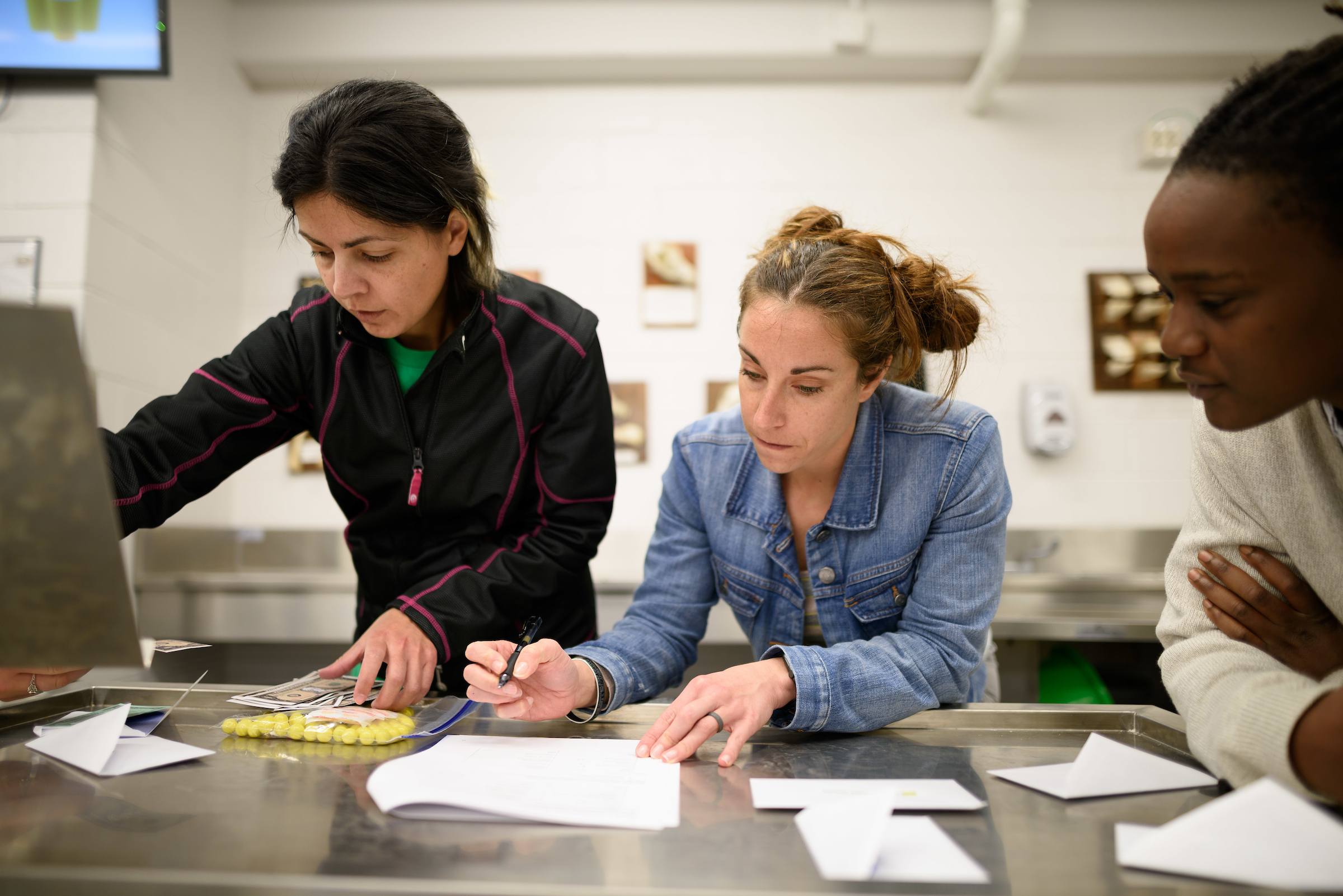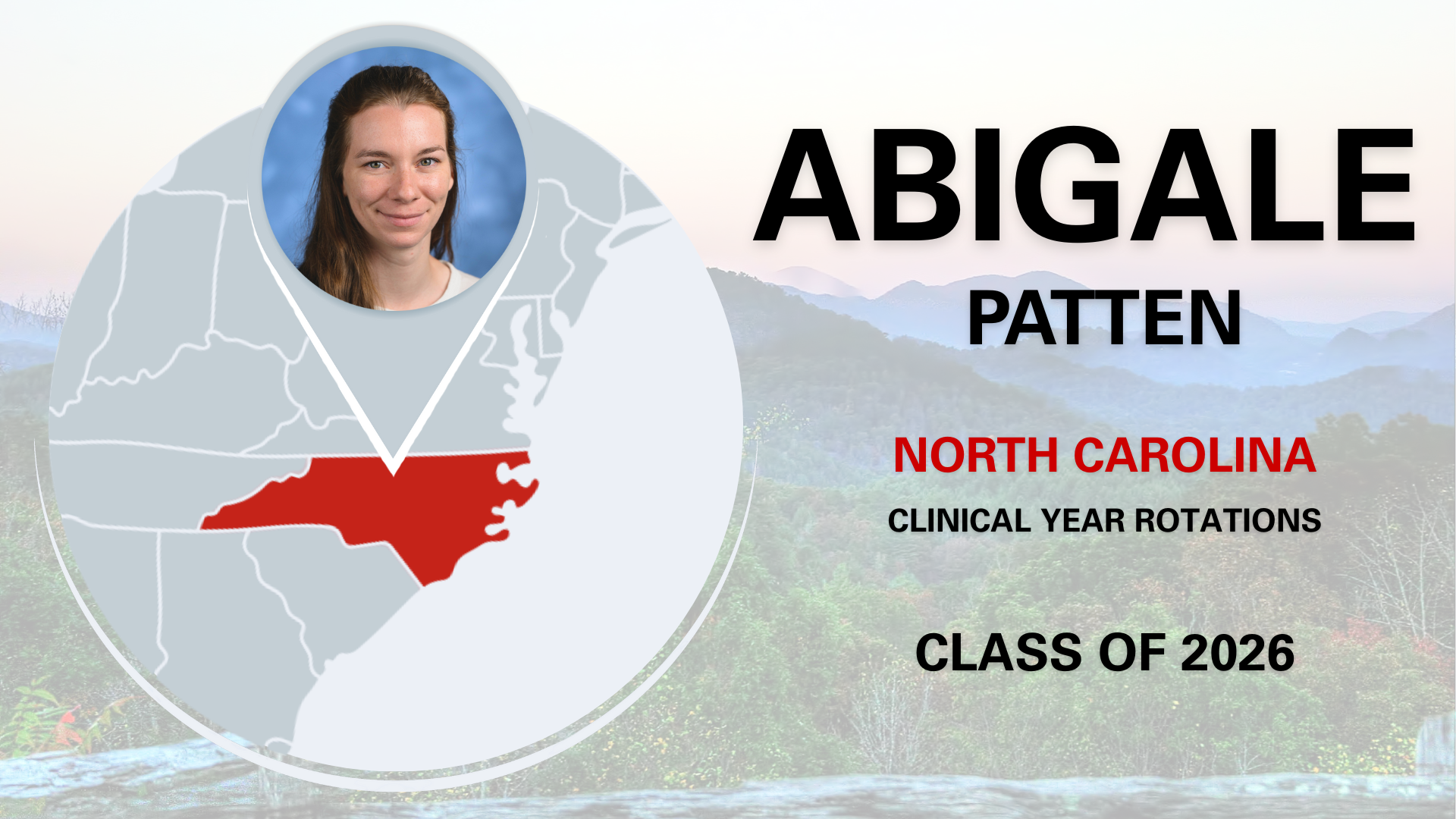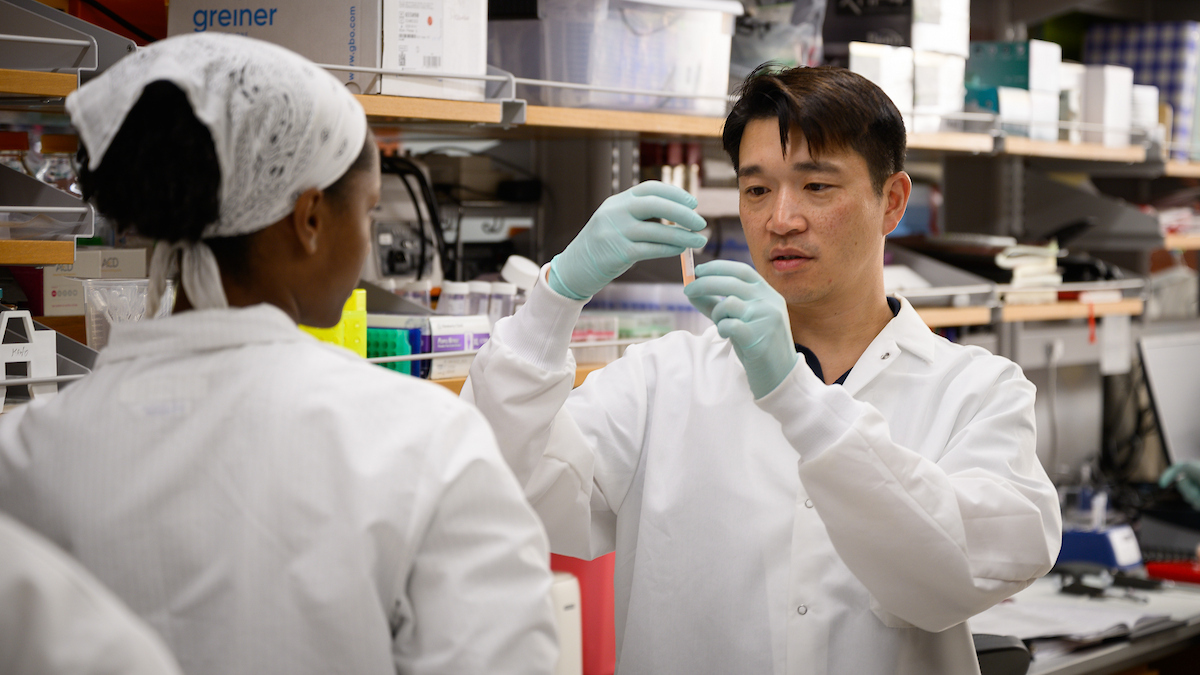Hackathon: Big Ideas in Animal Health, Hours Away

The NC State College of Veterinary Medicine is launching its first-ever hackathon this month, a weekend-long flurry of innovation showcasing the power of cross-discipline collaboration to improve animal health.
During the inaugural NC State University Animal Health Hackathon, scheduled for Sept. 27-29 at Talley Student Union, CVM students will form teams with other NC State students representing a dynamic variety of academic fields.
The teams, which form for the first time the afternoon of Sept. 27, will create new solutions to existing problems in the animal health industry. Mentors will be on hand to assist teams with everything from brainstorming ideas to prototype development. The teams will then present their marketable concepts to a panel of judges for a chance to win cash prizes.
Oh, and they have until just 10 a.m. Sept 29 to get it all done.
“There is something so powerful about watching different individuals from different sectors coming together to work collaboratively,” said Amy Snyder, a CVM clinical assistant professor and the hackathon’s lead organizer. “These are people who are all so extremely passionate about solving problems and figuring out the best tools to solve them.”
With the event, NC State joins just a small handful of colleges across the country who run a hackathon wholly devoted to animal health. Most other university-based hackathons are strictly tied to a business school or entrepreneurship program.
Snyder was inspired to launch NC State’s hackathon competition after attending the Cornell Animal Health Hackathon in January with a few CVM students and fellow CVM faculty. There, a team that included the CVM Class of 2021’s Trey Cook paired with engineering and marketing students, developed an electronic translation app to ease communication between non-English speaking farm workers, farm owners and veterinarians.
Cook’s team walked away with an award for best market-ready product. Snyder walked away inspired.
“It was empowering,” said Snyder, who leads the CVM’s business classes and was a general practice veterinarian before earning an MBA. “Everyone brought something so different and important to the table.”

NC State is ready-made for an animal health hackathon. Since planning began in late January, Snyder has connected with Centennial Campus’ Albright Entrepreneurs Village to engage student entrepreneurs and worked with the D.H. Hill Jr. Library’s Makerspace to provide a venue for teams to create prototypes if they wish.
Snyder sees a natural hackathon partnership with the NC State College of Agriculture and Life Sciences and the Poole College of Management. She sees value in working with the College of Engineering (orthopedic surgery and prosthetics) and the Department of Computer Science (telemedicine).
There’s also the potential for more unexpected partnerships, such as with NC State’s Wilson College of Textiles. At the Cornell event, Snyder said many of the animal health problems suited themselves to wearable solutions, such as clothing integrating antimicrobials or high-tech heart monitoring technology.
For its first year, the NC State Animal Health Hackathon will just be open to NC State students, primarily upperclassmen or graduate students, said Snyder, though she hopes to invite students from other colleges in the future. The inaugural theme is also North Carolina-centric, addressing animal issues of particular interest to the state’s economy, including the swine, poultry and equine industries.
The hackathon is still accepting sponsorships and is looking for representatives from animal health-related industries and organizations to act as mentors who offer teams guidance throughout the event. Interested students, sponsors and mentors can sign up through the hackathon website, which is also accepting suggestions of problems for student teams to solve. The event is free for students and mentors.
“When we think about big accomplishments in our history, they rarely take place because of just one person,” said Snyder. “NC State is an amazing university with so many different areas of expertise. We can achieve even more when we work together.”
~Jordan Bartel/NC State Veterinary Medicine


